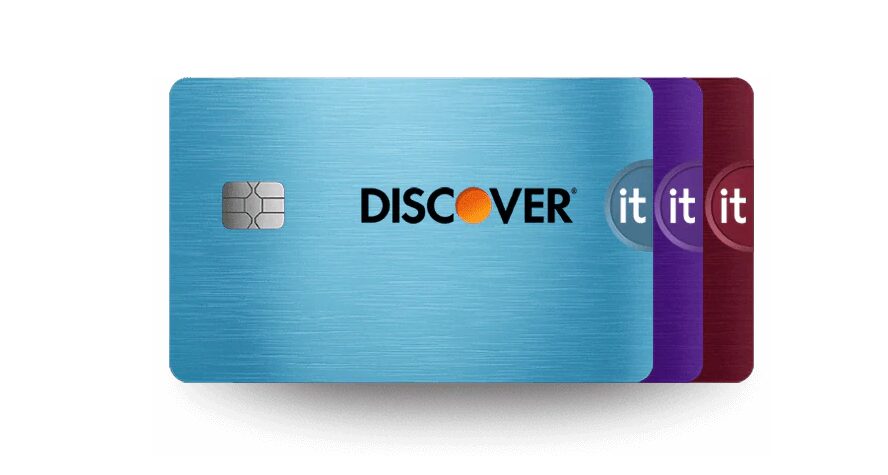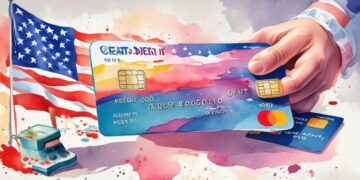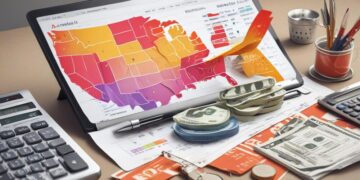Necessary Documents to Apply for a Personal Loan in the United States

Understanding the Personal Loan Application Process
Applying for a personal loan can often appear daunting; however, with thorough preparation and organization, the process can be manageable and efficient. Individuals seeking personal loans in the United States must recognize the importance of compiling the required documentation before submitting their application. Proper preparation not only smooths the application process but also enhances the likelihood of securing loan approval.
Essential Documentation for Loan Approval
When assessing your application, lenders typically require specific documents that serve to establish your financial reliability and capability to repay the loan. Below are the common types of documentation you will need to gather:
- Identification: A government-issued photo ID is essential for loan applications. Acceptable forms include a driver’s license or a passport, which help lenders verify your identity and reduce the risk of fraud.
- Proof of Income: To demonstrate your ability to repay the loan, be prepared to provide recent pay stubs, W-2 forms, or tax returns. This information helps lenders assess your monthly income levels and stability, which are critical in determining your eligibility for a loan.
- Credit History: Your credit report and credit score play a significant role in the approval process. Lenders review your credit history to gauge your past borrowing behavior, payment punctuality, and overall financial responsibility. A higher credit score can lead to better loan terms and interest rates.
- Employment Verification: Lenders may require proof of stable employment to advance your application. A letter from your employer or a recent bank statement showing direct deposits can effectively verify your job status and income consistency.
- Residency Proof: To confirm your current address, lenders typically ask for documents such as utility bills or lease agreements. This step is often part of the due diligence process to ensure the validity of your application.
Special Considerations and Final Tips
It is important to note that each lender may have unique requirements, and certain financial situations may necessitate additional documentation. For example, self-employed individuals may need to provide profit and loss statements or additional tax documentation. Being aware of these nuanced requirements can significantly benefit your application process.
In conclusion, understanding and preparing the necessary documentation can lead to a successful personal loan application. By streamlining your submission process and ensuring all paperwork is accurate and complete, you can focus on finding the most advantageous loan terms available. Remember that thorough preparation not only increases your chances of approval but also sets a positive tone for your future financial endeavors.
Key Forms and Information Required for Personal Loan Applications
To navigate the personal loan application process successfully, understanding and assembling the necessary documents is crucial. Lenders in the United States will typically require several critical pieces of information that demonstrate your financial stability and ability to repay the loan. Below are essential documents you should prepare before initiating your application:
- Identification Documents: The first step in any personal loan application is to provide valid identification. Lenders usually accept a government-issued photo ID, which can be a driver’s license, state ID, or passport. These documents confirm your identity and are fundamental in preventing identity theft. Some lenders may also require a Social Security number to further verify your identity against national databases.
- Proof of Income and Employment: To ascertain your ability to repay the loan, you will be asked to provide detailed proof of your income. This could include recent payslips, W-2 forms from employers, or copies of your tax returns from the last two years. If you are self-employed, it may be necessary to offer additional documentation such as 1099 forms or profit and loss statements for greater clarity on your financial status. Typically, lenders prefer consistent income sources for at least two years, which can provide insight into your stability and reliability as a borrower.
- Credit Report and Credit Score: Your credit history significantly influences the loan approval process. Lenders will review your credit report and score to evaluate your past borrowing behavior and repayment history. Obtaining your credit score in advance can help you understand your standing and identify if any improvements are needed before applying. For instance, resolving outstanding debts or disputing inaccuracies in your report can enhance your score and your eligibility for better loan terms.
- Financial Obligations and Debt-to-Income Ratio: Most lenders will assess your overall financial obligations and your debt-to-income (DTI) ratio, which is a critical metric in determining your financial health. This ratio is calculated by dividing your total monthly debt payments by your gross monthly income. A lower DTI, generally below 36%, signifies a better financial standing, which can favorably sway a lender’s decision. For example, if your monthly debt payments total $1,200 and your gross monthly income is $4,000, your DTI would be 30%, a relatively healthy figure that lenders would view positively.
- Proof of Residence: When applying for a personal loan, establishing your current residency can be necessary. Lenders may ask for documents such as a recent utility bill, lease agreement, or any official correspondence that includes your name and residential address. This verification supports the accuracy of the information you provide in your application, as it demonstrates stability and accountability regarding your living situation.
Being aware of these essential documents will significantly streamline the personal loan application process. Additionally, organizing your paperwork in advance allows for a more efficient interaction with the lender, potentially leading to quicker turnaround times for approval. By ensuring that each document is accurate and up to date, applicants can enhance their chances of approval and obtain favorable loan terms. Furthermore, it is advisable to maintain good communication with your lender throughout the application process to address any questions or additional requirements that may arise, thereby further showing your commitment and readiness to fulfill the loan obligations.
Additional Documentation and Considerations for Personal Loan Applications
In addition to the primary documents outlined previously, there are various supplementary materials and considerations that applicants should be prepared to provide to bolster their personal loan applications. These additional documents can further validate your financial situation and demonstrate your commitment to fulfilling loan agreements. Below are key items that may be requested by lenders:
- Bank Statements: Lenders often require copies of recent bank statements, typically covering the last two to three months. These statements offer insight into your financial habits, cash flow, and overall savings. A healthy account balance, combined with responsible management of funds, can help portray you as a lower-risk borrower. It’s essential to present statements that accurately reflect your financial standing, avoiding any overdrafts or questionable transactions that could raise red flags during the review process.
- Loan Purpose Declaration: Some lenders may ask for a brief statement or declaration outlining the specific purpose of the loan—whether it’s for debt consolidation, home improvement, or medical expenses. Clearly stating the intended use of the funds can provide context and enhance your credibility as a borrower. For instance, if applying for a loan to consolidate high-interest debts, presenting a plan on how this will improve your financial situation can positively influence a lender’s decision.
- Collateral Documentation (if applicable): If you are applying for a secured personal loan, which requires collateral to mitigate the lender’s risk, you will need to provide documents related to the asset being used as collateral. This may include titles for vehicles, property deeds, or any other legal documents establishing ownership and value of the collateral. Lenders will assess this information to ensure that the collateral adequately covers the loan amount in case of default.
- References: Some lenders may request personal or professional references as a means of verifying character and stability. These references should be individuals who can speak positively about your reliability and financial responsibility. It is advisable to reach out to these references beforehand to ensure they are willing to provide feedback if contacted by the lender.
- Employment Verification Letter: In cases where employment status or income is not easily verifiable through pay stubs or tax returns, lenders may request an employment verification letter from your employer. This document typically confirms your position, length of employment, and salary, effectively supporting your application’s claims of income stability.
- Credit Counseling Certificates (if applicable): If you have previously sought credit counseling as a way to manage your debts or establish better financial practices, some lenders may ask for related documentation. Providing certificates from reputable counseling services can demonstrate your commitment to improving your financial health and willingness to seek assistance when necessary.
When organizing your documentation, be mindful of time frames, ensuring all materials are current, usually dating no older than 60 days from the application submission. Moreover, maintaining transparent communication with your lender can mitigate potential delays. If possible, consider submitting your documents digitally, as many lenders streamline their processes through online platforms, expediting the entire application experience. Remember, thorough preparation not only strengthens your application but may also improve the conditions offered by lenders, potentially yielding lower interest rates and better repayment terms.
Conclusion
Successfully navigating the process of applying for a personal loan in the United States requires careful preparation and a solid understanding of the necessary documentation. As discussed, a combination of primary documents—including identification, proof of income, and credit history—form the foundation of a strong application. Additionally, providing supplementary documents such as bank statements, loan purpose declarations, and employment verification letters can further strengthen your position as a borrower. These documents not only establish your financial credibility but also demonstrate your commitment to managing the loan responsibly.
It is vital for applicants to approach the loan application process with thoroughness and transparency. Ensuring that all materials are up-to-date and accurately reflect your financial status can significantly enhance your chances of approval. Furthermore, by clearly articulating the intended use of the loan and affording the lender insight into your financial habits, you can foster trust and facilitate a smoother approval experience.
In conclusion, understanding the documentation requirements and equipping yourself with the appropriate paperwork is essential for anyone considering a personal loan. By taking these vital steps, you not only enhance your application but may also position yourself to secure better terms, including lower interest rates and more favorable repayment options. As the lending environment continues to evolve, staying informed about documentation standards and lender preferences will prove beneficial in achieving your financial objectives.
Related posts:
Tips for Diversifying Investments in the American Financial Market
The Influence of Crowdfunding Platforms on the Financing of Social Projects in the USA
The Role of Fintechs in the Modernization of the Community Banking Sector in the USA
American credit cards with cashback and exclusive benefits
The Challenges of Financial Planning for Baby Boomers in the United States
The Cryptocurrency Revolution: The Future of Financial Transactions

Beatriz Johnson is a seasoned financial analyst and writer with a passion for simplifying the complexities of economics and finance. With over a decade of experience in the industry, she specializes in topics like personal finance, investment strategies, and global economic trends. Through her work on Web Dinheiro, Beatriz empowers readers to make informed financial decisions and stay ahead in the ever-changing economic landscape.







